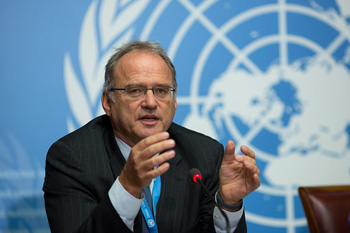
Perspectives of peaceful assembly Presented by Prof Christof Heyns
Public demonstrations emerged during the 20th Century as a powerful and popular form of political participation and mobilisation. It is a tool which has often been used in the pursuit of freedom, but it has also been used for many other causes. It has in some cases resulted in violence being used by the state, or by participants, or both. The recent events in places such as Hong Kong, Paris and Harare - and, closer to home, on our campus - present the question: How should states respond to peaceful (and not so peaceful) assemblies?
Date: Monday, 9 September 2019
Time: 09:00 to 11:00
Venue: Law 1-48
Christof Heyns (ICLA) currently leads the process within the United Nations Human Rights Committee to prepare guidelines on 'the right of peaceful assembly’, as recognised in article 21 of the Covenant on Civil and Political Rights. The Committee is expected to give guidance on questions such as the following: When is an assembly ‘peaceful’ (can violence by some be attributed to all?); when is one dealing with an ‘assembly’ (can a lone protester claim the right? are online ‘gatherings’ protected?); are assemblies on private property covered?; should organisers be held liable for damage; and when may the police use interfere? The UN process is described here: https://www.ohchr.org/EN/HRBodies/CCPR/Pages/GCArticle21.aspx
Christof will give a short introduction, and Dr Joel Modiri (Jurisprudence) and Dr Gustav Muller (Private Law) will serve as respondents, before the floor is opened for discussion.

